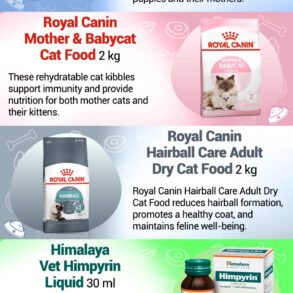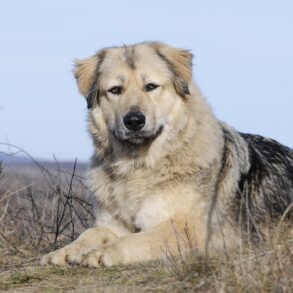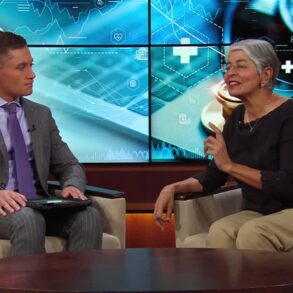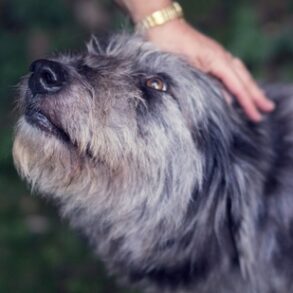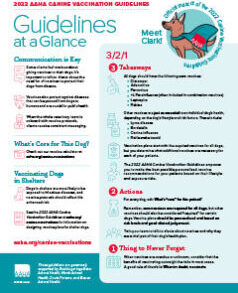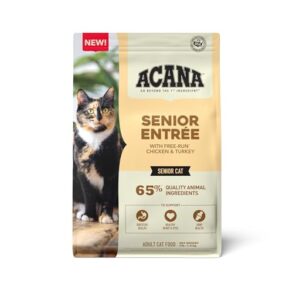
The bond between humans and dogs has always been strong. In recent years, this bond has only grown stronger as dogs have become beloved members of the family – sharing our homes, hobbies and furniture.
But do you know that they also share many of the same health concerns as us? From cancer to infectious disease to toxin exposure and more, dogs and humans have many common threats to our physical health. Prevention and treatment strategies to minimise these threats may be similar in many canine and human diseases. Therefore, research to understand dog health may also benefit people at the other end of the leash.
This mutual benefit demonstrates a concept known as One Health. The One Health approach recognises a connection between the health of humans, animals and their shared environment. According to the Centers for Disease Control and Prevention, One Health is becoming increasingly important due to the growing human population, changes in climate and land use (such as increased farming), and increased movement of people, animals, and animal products through international travel and trade.
These changes bring people and animals in close contact and make it easier for the rapid and global spread of disease. To tackle these challenges, a collaborative approach is needed among veterinarians, medical doctors, and other scientific-health professionals working locally, nationally, and globally.
Contributing to this effort is the AKC Canine Health Foundation, a non-profit organisation dedicated to advancing the health of all dogs and their owners. CHF provides funding for scientific research into the health needs of dogs throughout their lifetime.
With over US$68mil (RM321mil) invested since 1995, CHF-funded research has explored various health problems such as skin allergies, bone cancer, epilepsy and more. As technology advances and new threats to canine health emerge, CHF remains responsive and directs research dollars to projects with the most potential to advance the health of dogs. If that research simultaneously advances knowledge for human medicine, all the better.
Several examples of CHF-funded research have already made a significant impact on One Health. These include:
> Ongoing research is examining the link between cancer development and toxin exposure. Research has already shown that canine bladder cancer is associated with household use of insecticides and herbicides as well as living in areas of higher industrial activity.
Similarly, lymphoma in dogs and people is associated with household pesticide and herbicide use and proximity to industrial areas. Researchers are studying how genetic and environmental factors combine to cause various cancers in dogs with the goal of developing better prevention strategies like water filtration and efforts to decrease air pollution. These strategies would benefit both dogs and humans.
> Bone cancer in dogs (osteosarcoma) shares many similarities with the human form of this cancer, which is usually diagnosed in adolescents. Histotripsy is a non-invasive, focused ultrasound method that mechanically breaks up tissues using controlled ultrasound pulses. It has been effectively used to treat liver cancer in humans and is now being studied to treat bone cancer in dogs. Successful laboratory studies have paved the way for an ongoing CHF-funded clinical trial using this treatment in affected dogs. It may eventually be helpful in treating humans with bone cancer too.
> Borrowing from human studies showing the benefits of a ketogenic diet for children with epilepsy, CHF-funded researchers studied the phenomenon in dogs. Supplementing epileptic dogs with medium-chain triglyceride (MCT) oil, one component of the ketogenic diet with direct anti-seizure effects on the brain, reduced seizure frequency and severity, and improved the behavioural problems associated with canine epilepsy such as anxiety and cognitive changes.
These are just a few examples of the benefits of One Health research. Investigators are studying many diseases that impact both dogs and humans, such as antibiotic resistance, tick-borne disease, breast cancer, and more.
While the primary focus of CHF-funded research is to improve the health of dogs, the collaboration between scientists from different fields allows us to learn more quickly and efficiently, which can benefit both veterinary and human medicine. So, the next time your dog looks up at you from the other end of the leash, smile and know that you are connected in many ways, and we are all in this together. – Tribune News Service/American Kennel Club/Sharon M. Albright, DVM, CCRT
Learn more about CHF’s commitment to One Health at akcchf.org/onehealth.
This post was originally published on this site be sure to check out more of their content.













